FORT JACKSON, S.C. - A new pilot program using the latest electronic technologies was implemented during the first nation-wide Army Reserve lieutenant colonel command selection board held at the 81st Regional Support Command Dec. 6-9.
Seven colonels, representing their major subordinate commands throughout the continental U.S., and Brig. Gen. Pat Heritsch, commanding general of the 100th Training Division and selection board president, spent four days here guiding their mouse pointer through 179 potential command applicants.
Patricia Upton, the 81st RSC's officer branch chief, said the applicants competed for 125 command positions that are vacant, or will be vacated between now and December 2010.
Challenged by the previous "Wildcat" commander, Maj. Gen. Charles E. Gorton, to move the selection process to an electronic delivery system, Upton said she was ready to conquer the mountain placed in front of her.
As the officer branch staff worked with the Human Resources Command and U.S. Army Reserve Command to develop and implement software for the mission, Upton and her team moved forward with accomplishing the task at hand - mainstreaming an already cumbersome process.
"We decided to digitize all the files we received from the field and save them to our computers," Upton said.
Before the board members arrived at the Fort Jackson-based RSC headquarters, the officer branch team spent numerous attentive hours, ensuring each document was properly scanned, renamed and cataloged into the appropriate applicant's folder.
The end result was that instead of the sound of papers being shuffled, flipped and flipped again, only quiet computer mouse clicks were heard as the board members opened the electronic packets for their deliberations.
Like nearly everything associated with an exponentially growing technology base, Upton said they had their moments.
"We did have some isolated momentary glitches, but overall, it went much better than I expected," she said.
Those glitches didn't go unnoticed but also didn't affect the overall presentation of the board, said Col. Robert Rauchle, the logistics officer with the 85th Training Division based in Arlington Heights, Ill.
"The 81st RSC did an outstanding job implementing this pilot program," Rauchle said. "Although nearly all the files were crystal clear, there were some files that were blurry, but the staff here was very quick to provide the original document, if needed."
Rauchle said consolidating the selection process into a national board was an outstanding idea which allows the board members to select the best-qualified officers for the Army Reserve mission across all major commands.
"What this does is eliminate the anomalies and sets the standards at the regional support command level," he said.
Upton said the command selection board is scheduled to rotate on a quarterly basis among the four regional support commands.
Most importantly, Rauchle said the new program solidified the process and will set a new tone for officers looking for a command in the Reserve.
In the past, Army Reserve Soldiers have been able to "homestead" in one command, but in today's force, Rauchle said many applicants are doing everything but staying in one spot.
"We have officers traveling coast-to-coast taking on different responsibilities and engaging in new challenges," he said. "This is a great thing for a new Army Reserve and its growing mission.
The command selection applicants all have different command philosophies and ideals which allows for a better, more developed force."
As the officers pass their secret scoring sheets for the command applicants to the 81st RSC board support staff, official photos, biographies and officer records briefs could be seen as they flashed onto the computer screens of the attentive panel members.
"This is a very critical and important process these officers have been charged with," said Heritsch, whose command is based in Louisville, Ky. "We are here applying our experiences and knowledge to help us select the best candidates for a command position."
Heritsch said the change from a regional to a national selection board was the right decision at the right time.
"We now have national commands whose footprint spreads across several different regions," she said about all four regional support commands' areas of responsibility. "Having this board consolidated reflects the positive changes in our Reserve force."
She applauded the 81st RSC staff and USARC for their efforts to enable the board to select the best-qualified lieutenant colonels for commands at the battalion level.
Col. Frank Eubanks, commander of the 4th Brigade, 94th Division, said that at the end of the day board members were able to see and determine the best officers throughout the Army Reserve at both the local and national level.
"Taking it nationally, you get to see all of the varieties which serves to help board members mentor junior officers for the future because the board members' experience level is now expanded," Eubanks said.
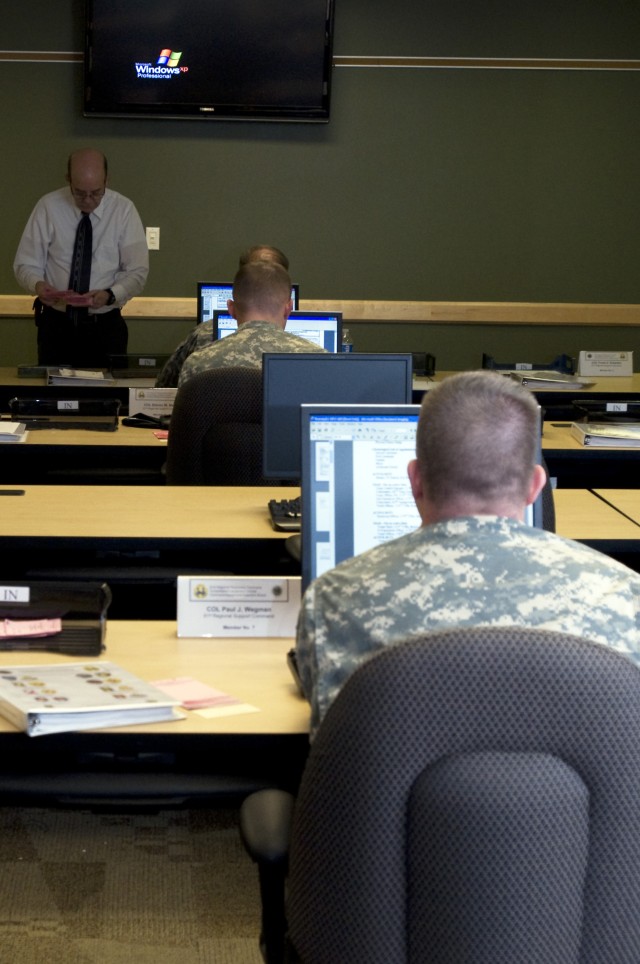
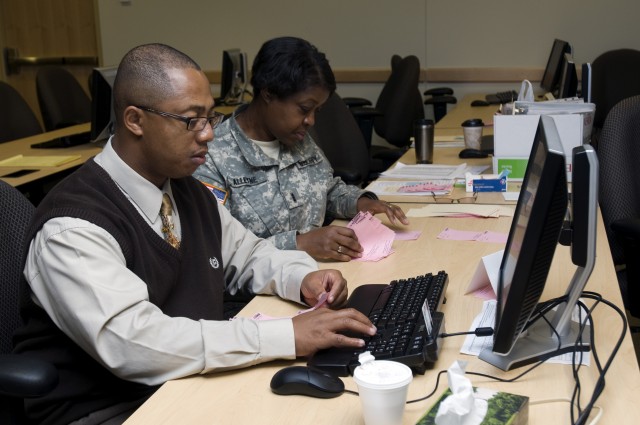
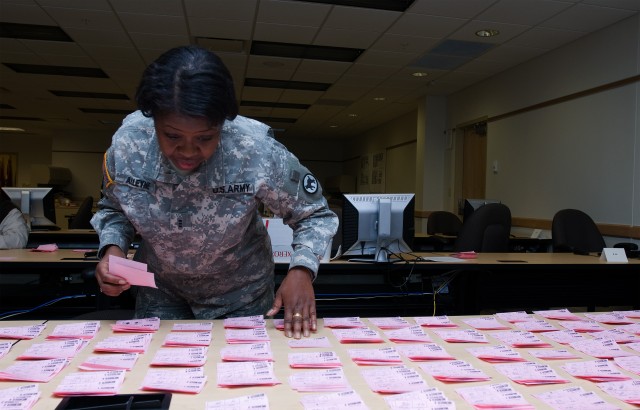
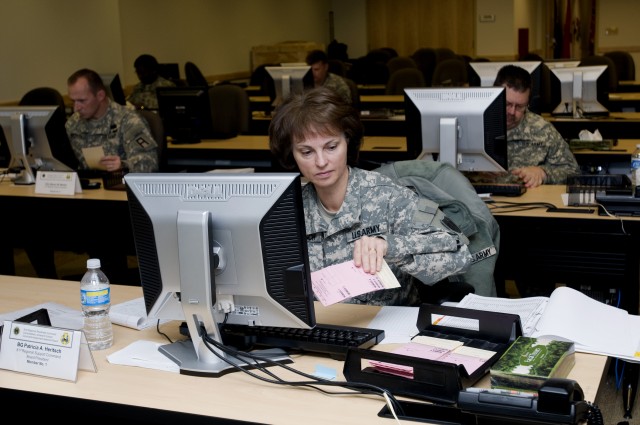
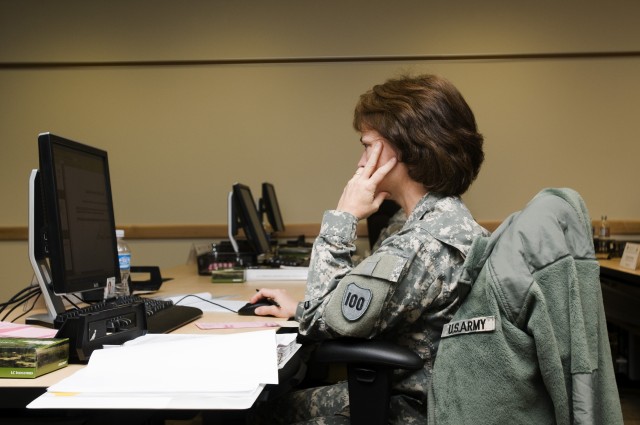
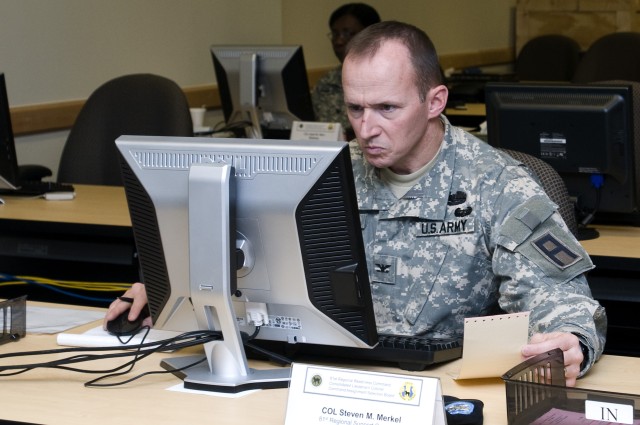
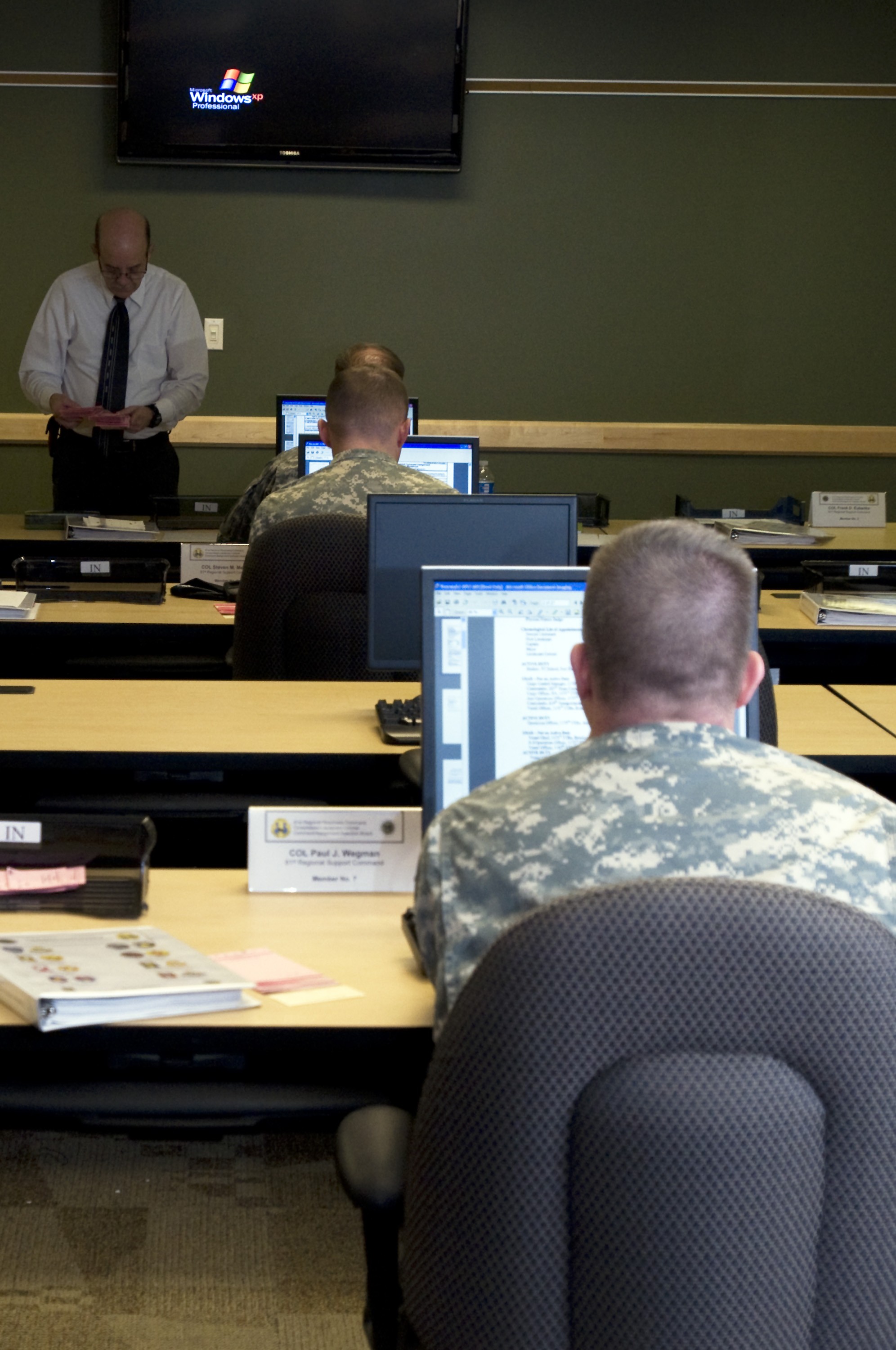
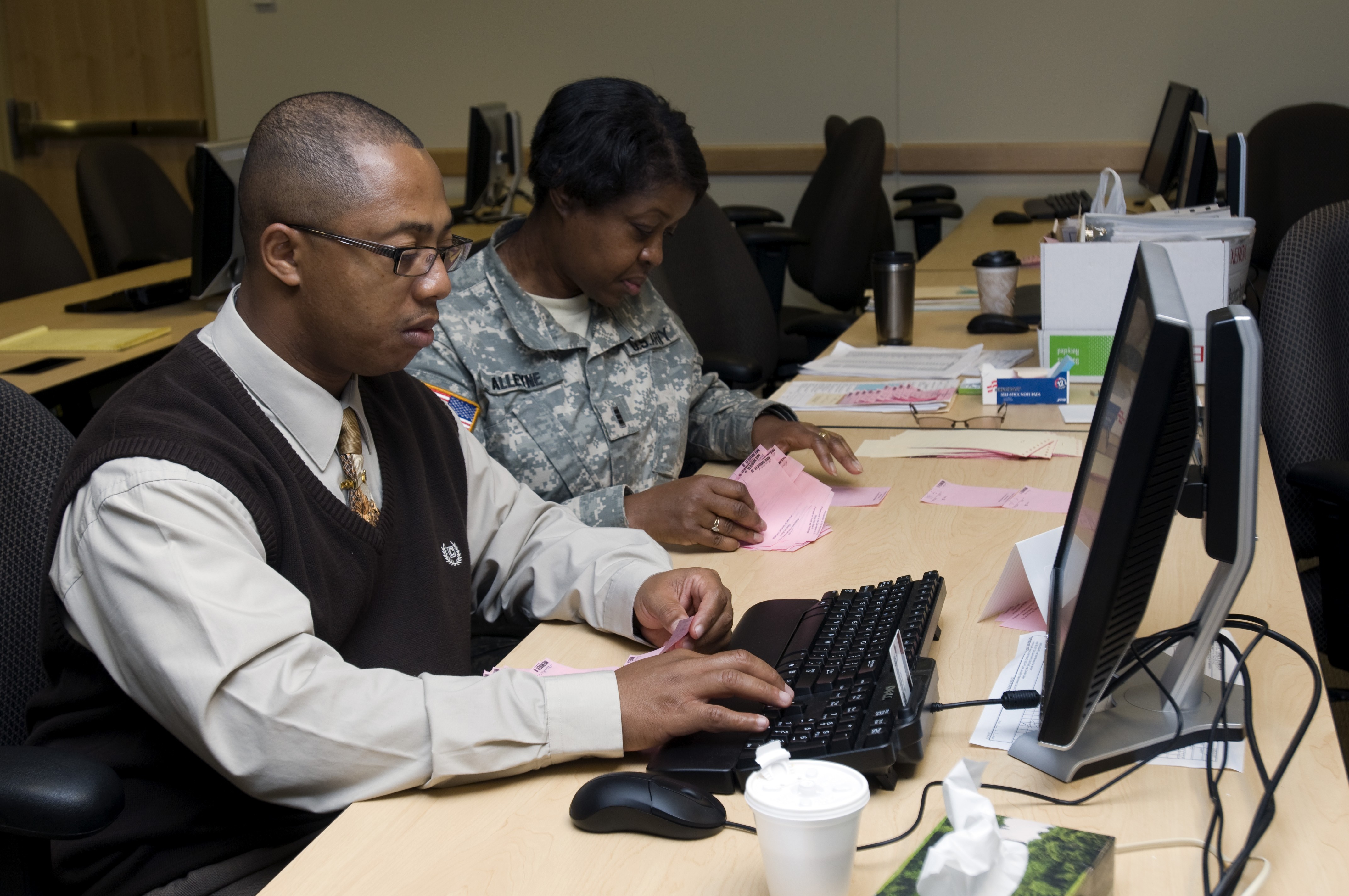
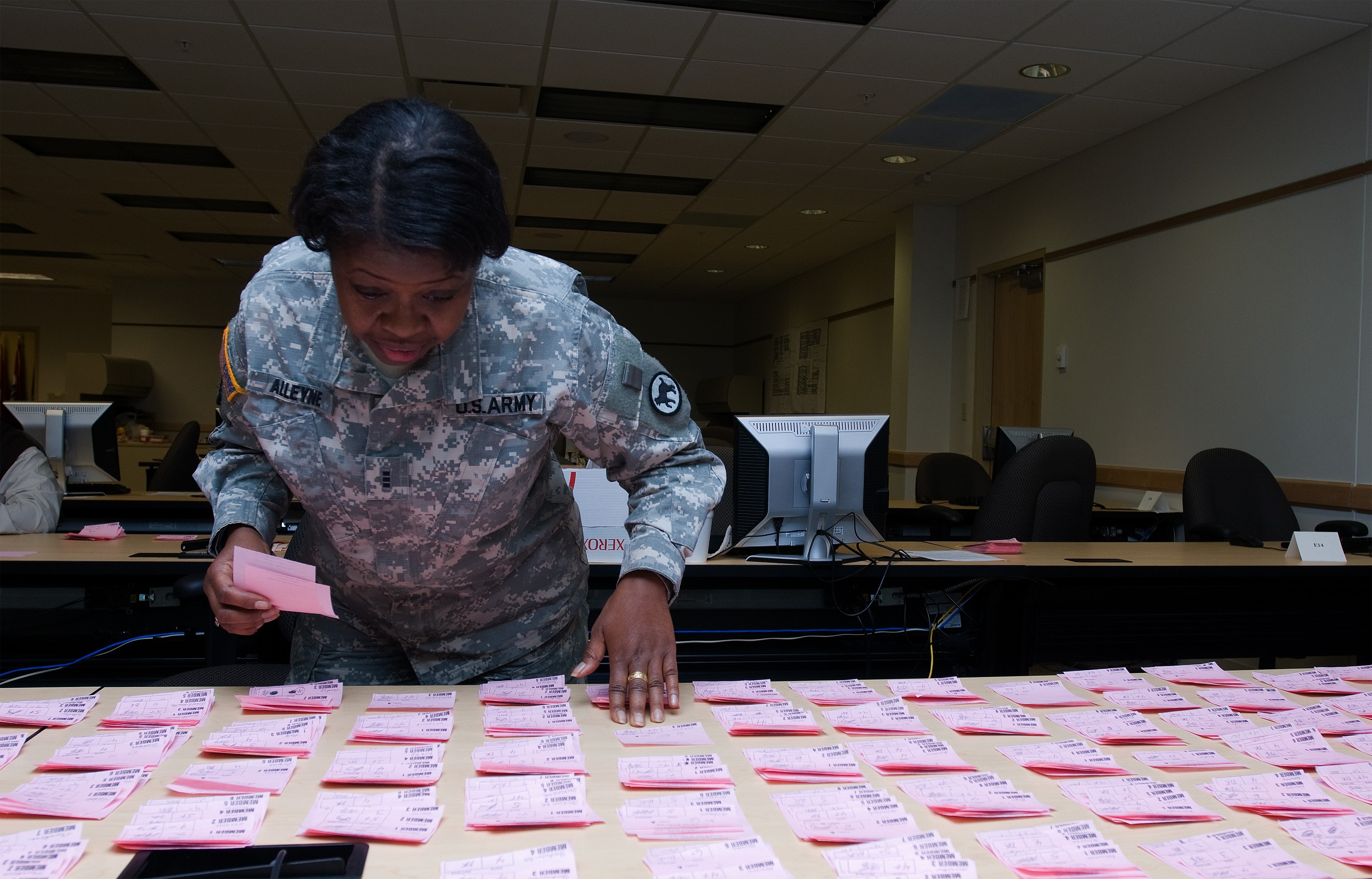
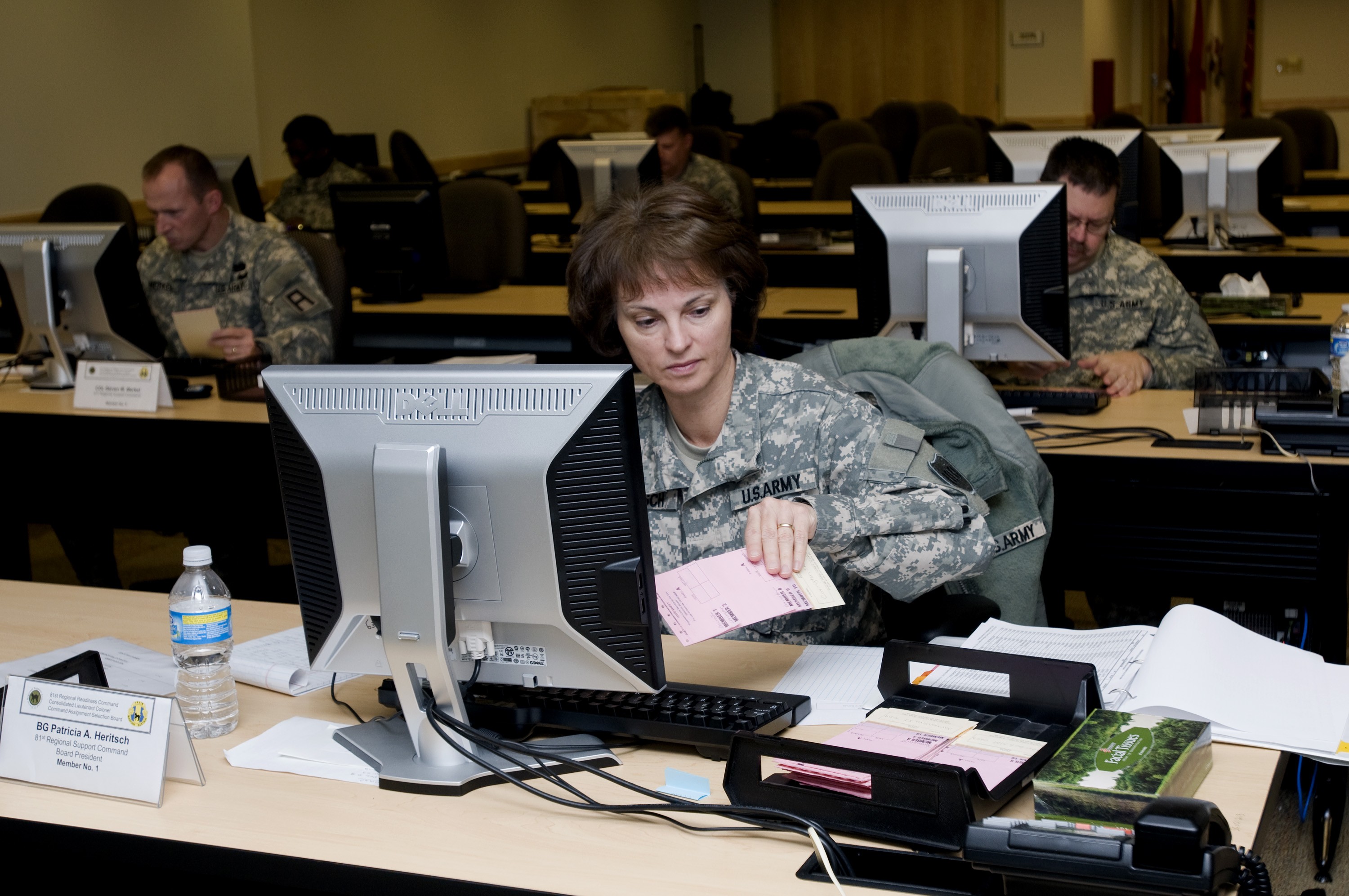
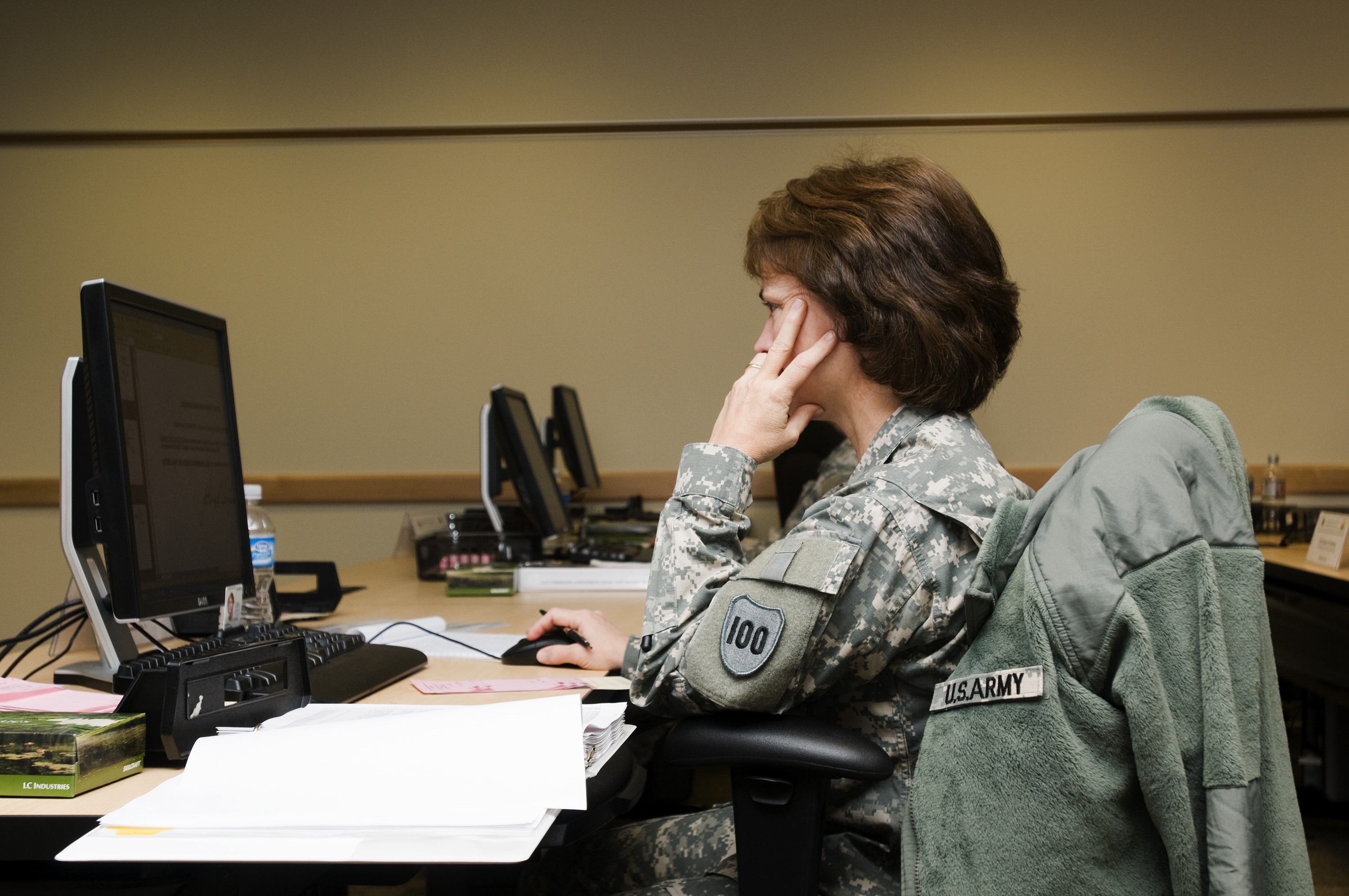
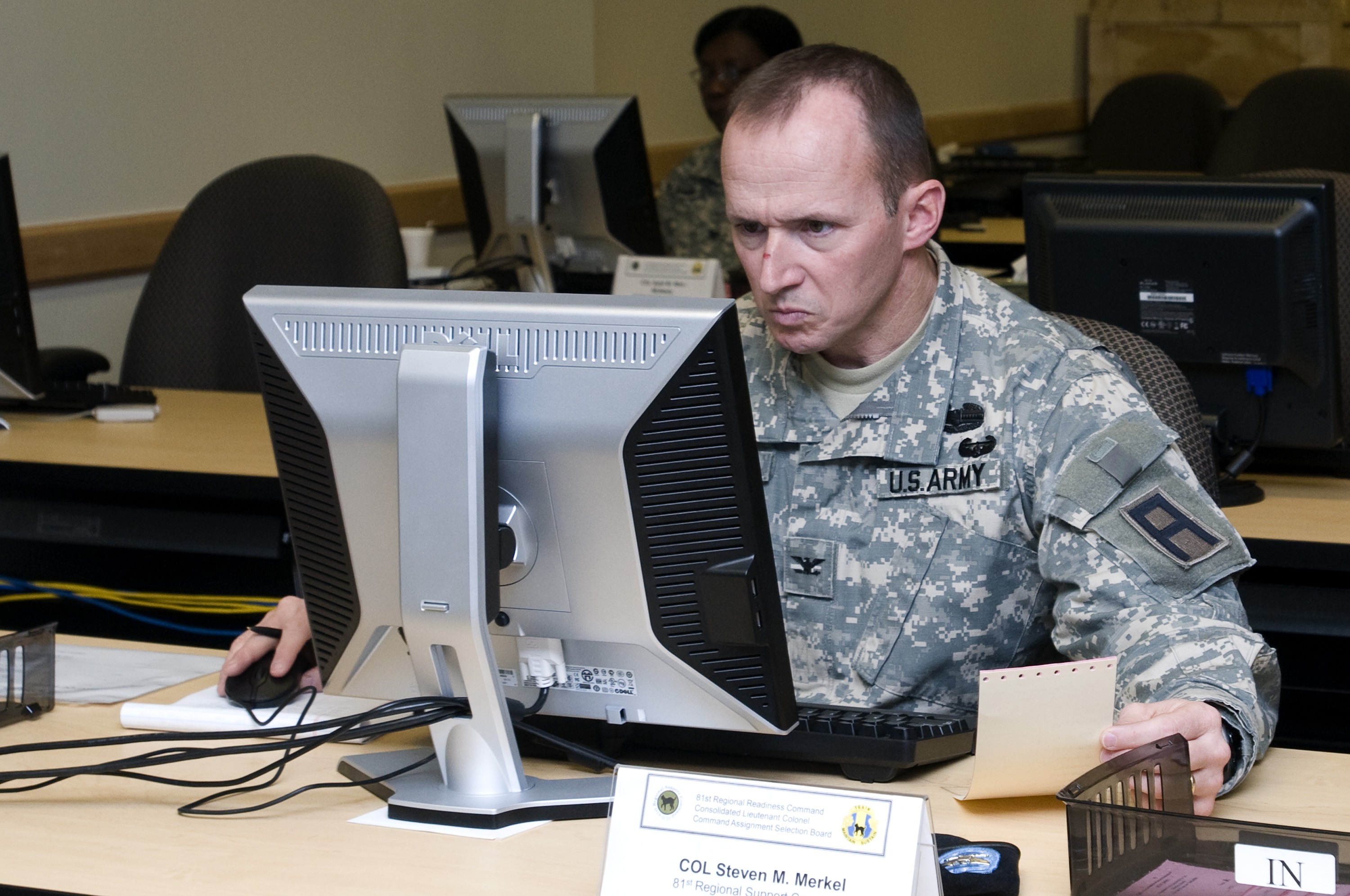
Social Sharing